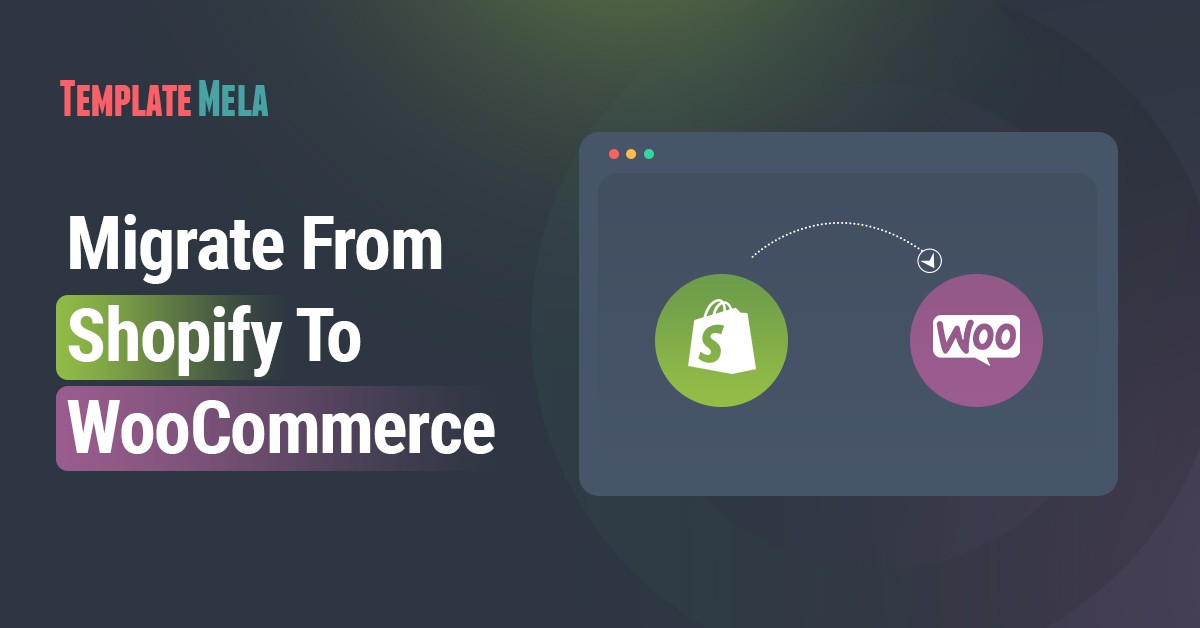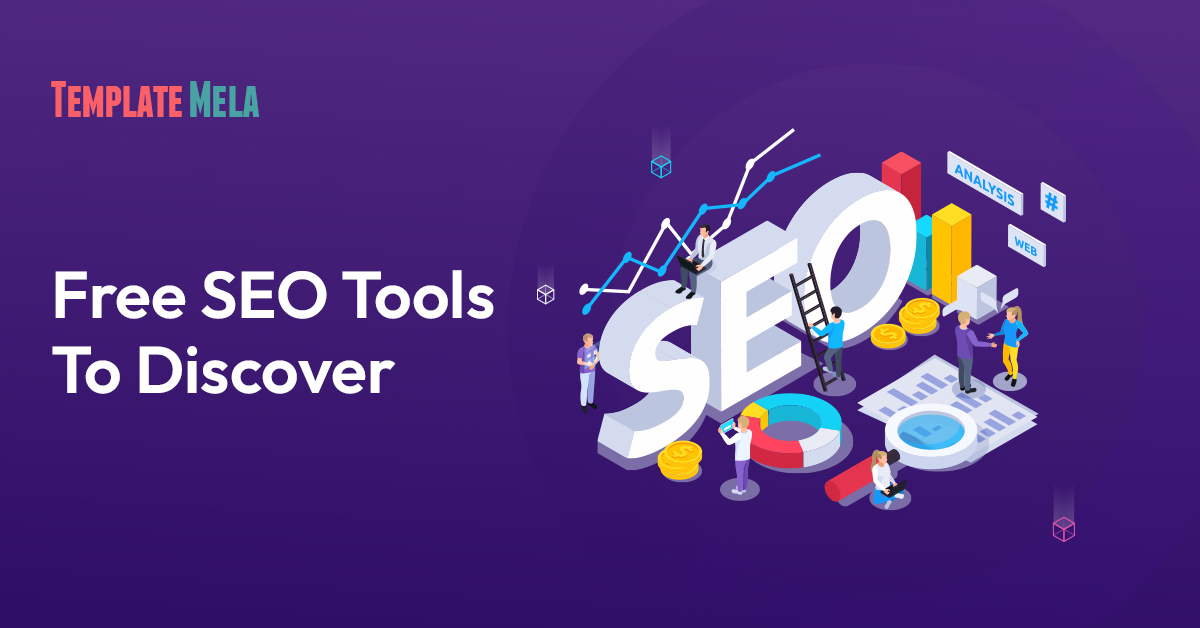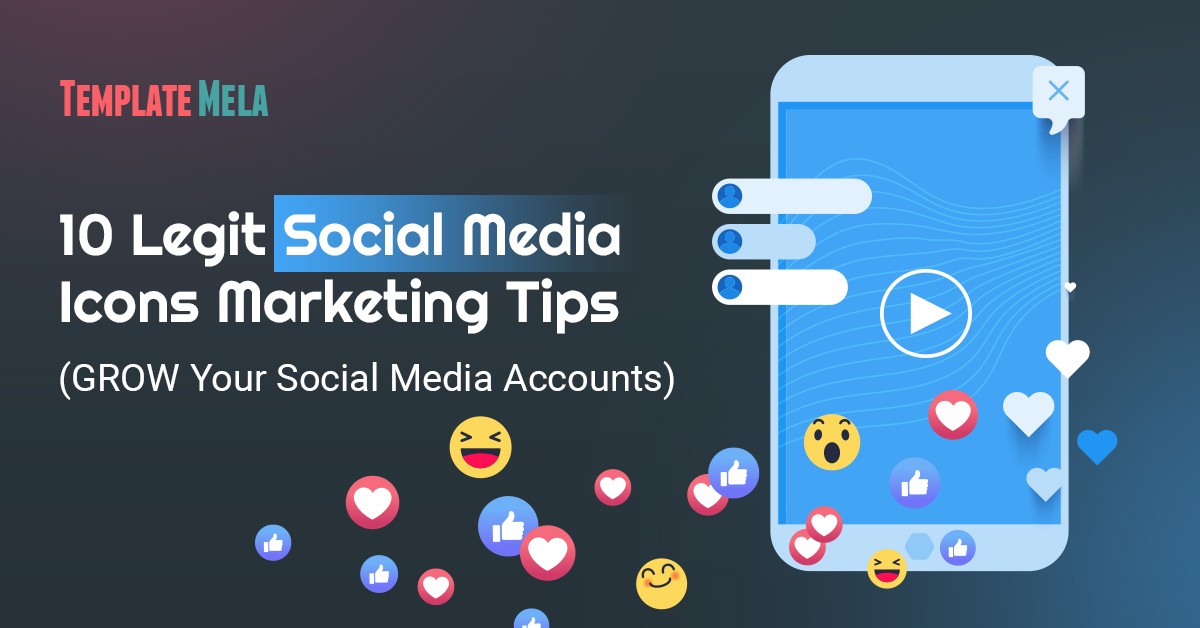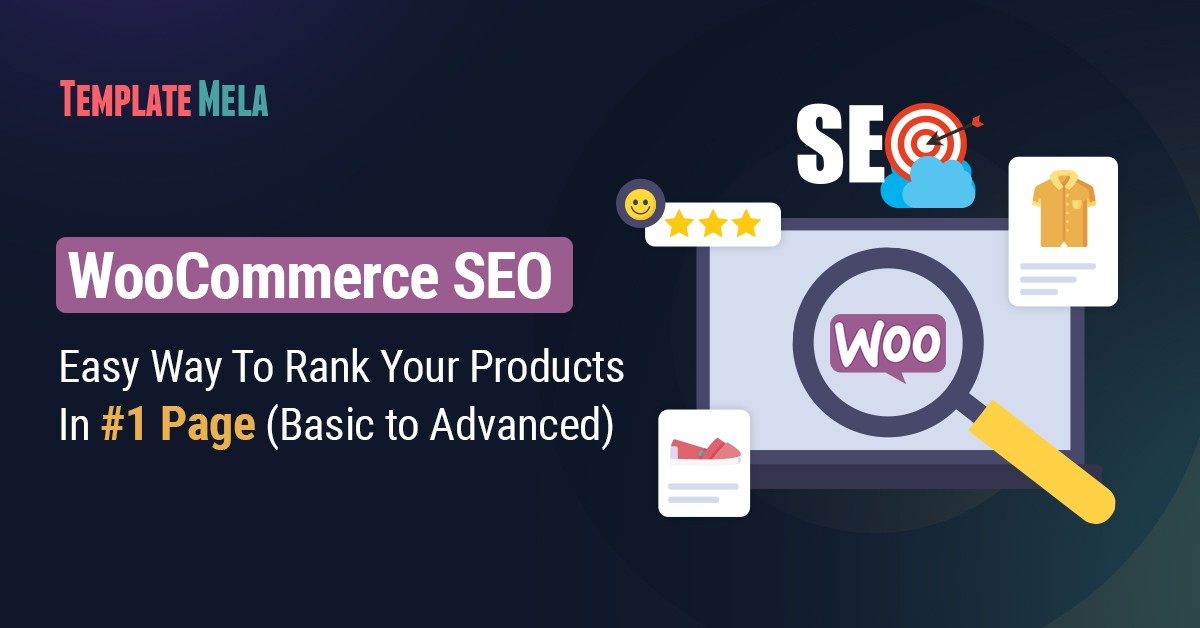6 Major Differences To Note Down Between B2B & B2C Ecommerce Sites
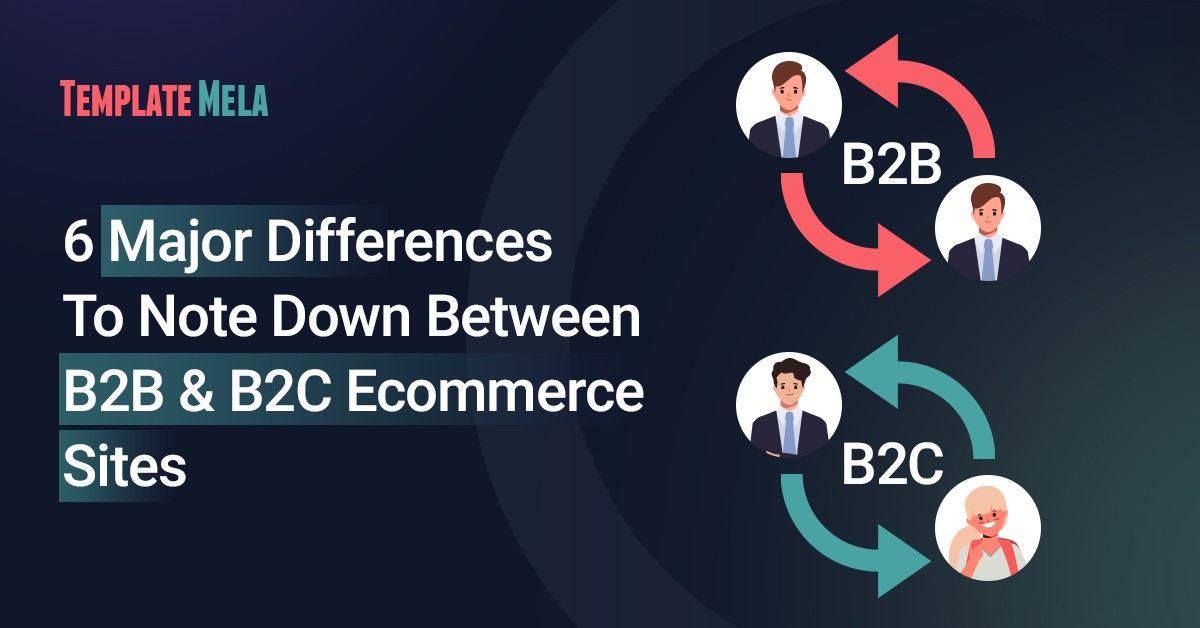
The concept of B2B & B2C is pretty straightforward to understand, but still, it confuses a lot of people.
B2B (Selling Business to Business)
B2C (Selling Business to Customers)
It’s crucial for everyone in the eCommerce world, whether they’re just starting out or have a long history, to understand how both forms work.
Before focusing on any other sort of advertising, just make sure your website is built to convert.
However, the transformation is apparent, with the B2B (business to business) sector constantly changing and, in many ways, becoming more similar to the B2C (business to consumer) world.
Furthermore, depending on your target audience, the technique you take to improve conversions will differ significantly.
Let’s get started with our 6 major differences between B2B & B2C eCommerce websites.
When you create an eCommerce website that is personalized to your business strategy, you will almost likely see an increase in sales.
You can also use product management software to increase the overall productivity of your b2b business.
What Do B2B And B2C Mean In eCommerce?
Let’s take a closer look at what the terms B2B and B2C actually represent in the world of eCommerce.
First of all, B2B stands for Business to Business. The company that does B2B sales means that they sell their products only to companies.
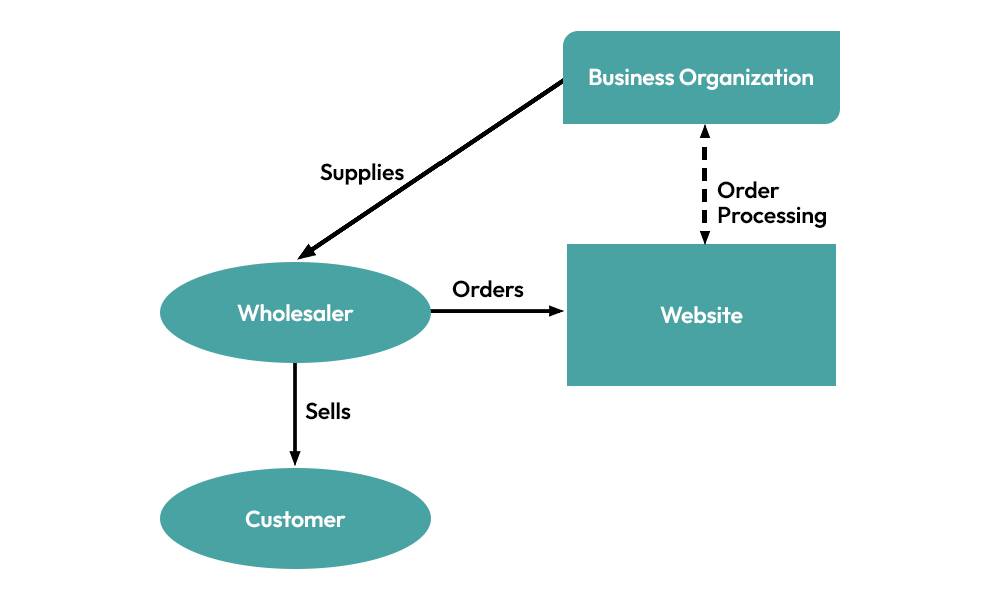
The companies can then resell to their customers with a higher profit margin. There is some well-known B2B marketplace such as:
- Global Sources
- Alibaba
- IndiaMart
Check more top B2B eCommerce platforms
Second of all, B2C means Business to consumers, it means selling products directly to customers.

The first name that comes to mind when discussing B2C companies is none other than Amazon.
However, there are other big organizations, which are named below:
- eBay
- Shopify
- Walmart
A B2C eCommerce transaction will always involve the end-user purchasing the product for their own usage.
People, for example, buy clothing and electronic items from online stores on their own.
Is B2B More Complex Than B2C?
Yes, there is little complexity in B2B compared to B2C.
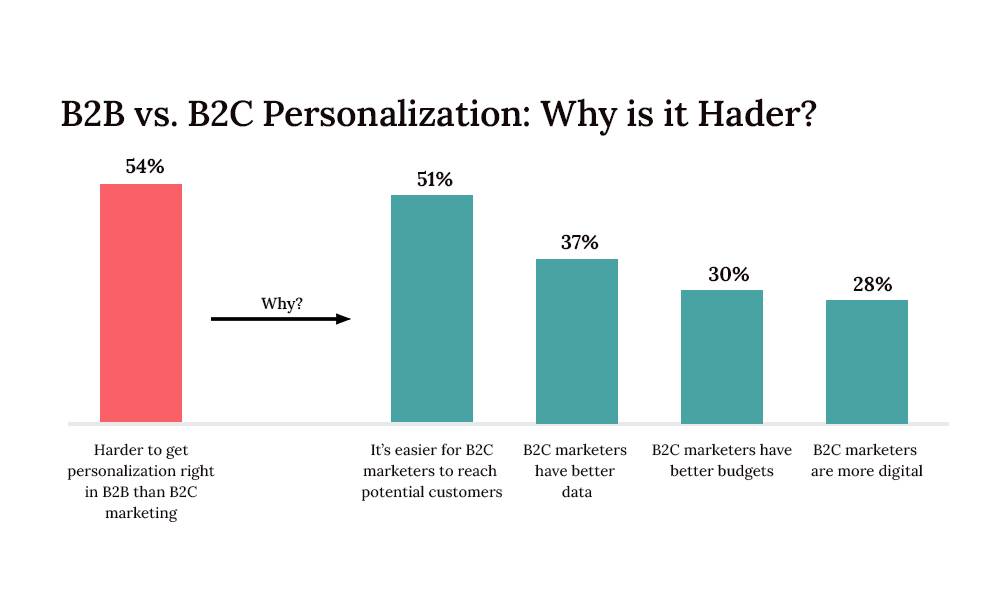
Because B2B requires more in-depth research, it also necessitates needs-based purchasing rather than marketing-driven purchasing.
Here are some of the reasons why B2B is more challenging than B2C.
- When B2B buyers make a purchase they must consult with multiple departments, whereas B2C consumers must only consider themselves.
- B2B buyers think in terms of the long term, which means they devote more time to research and sourcing recommendations.
Whereas, the B2C customer is more likely to make impulsive or emotionally driven purchases.
- B2B buyers typically repeat buyers, businesses must examine the entire buyer lifecycle.
When B2C customers frequently purchase a product only once.
- B2B purchasers have a narrower scope than B2C customers because they are making purchasing decisions for entire enterprises.
So these were some of the particular reasons why B2B is more complicated and hard to understand than B2C.
B2B And B2C: Current Situation
We all know how the eCommerce World has changed in the past two years.
And we’re all aware of the reason: The Pandemic!
Businesses that had never heard of eCommerce are now starting their own online eCommerce stores.
You can check the Statista report here, which displays online Sales in the US across B2B and B2C.
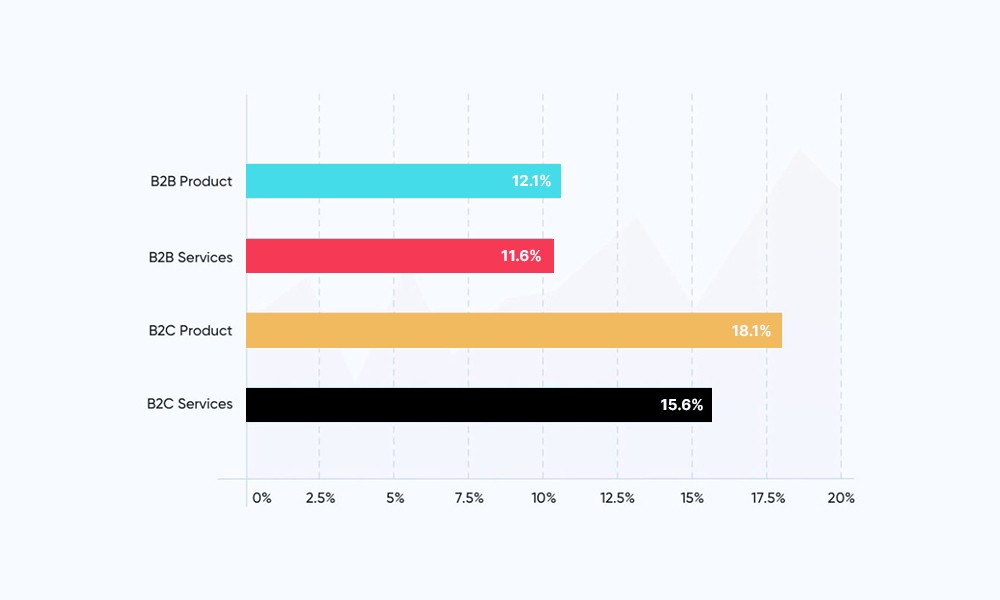
This indicates that both B2B & B2C eCommerce sales and growth are projected to INCREASE.
According to MarketWatch, the worldwide B2B eCommerce market is predicted to increase at an annual pace of 8.5% from $7.6 billion USD in 2017 to $13.6 billion in 2027.
It is apparent that the B2C sector has grown significantly faster than the B2B industry.
6 Major Differences Between B2B & B2C Ecommerce
It’s time to go deeper into the primary distinctions between B2B & B2C eCommerce so you can gain some crucial insights into running your online business as efficiently as possible!
1. B2B Vs B2C Ecommerce – Web Difference
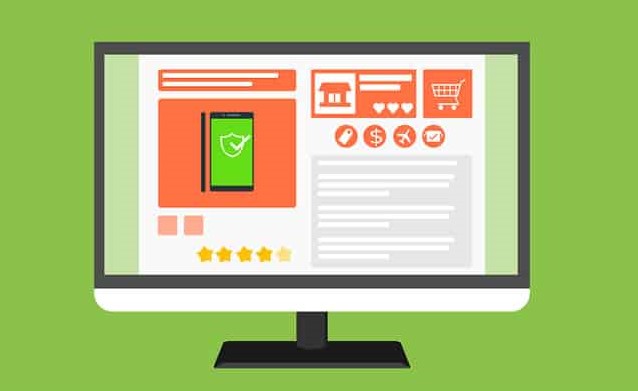
Web design significantly impacts users and sales. In today’s time, your web design should be up to par.
No one likes to see outdated and ineffective site design since consumers are more drawn to gorgeous design and cutting-edge capabilities.
This has an impact on both the B2B & B2C eCommerce industries.
When it comes to B2C, your web design should stimulate users’ emotions which makes them purchase on your site.
In order to create a modern store, you need to have a fantastic-looking theme that overall elevates your store’s look and feel.
So, if you’re going to start a B2C business, then make sure you choose a design that appeals to almost every age group of people.
When it comes to B2B business, it should be a quality site and look more professional.
But no worries, there are many professional B2B themes that you can consider for your store.
B2B buyers are mostly looking for something more educational.
This could include product demo videos or case studies demonstrating how your B2B solution helped another organization.
2. B2B Vs B2C Ecommerce – Customer Lifecycle
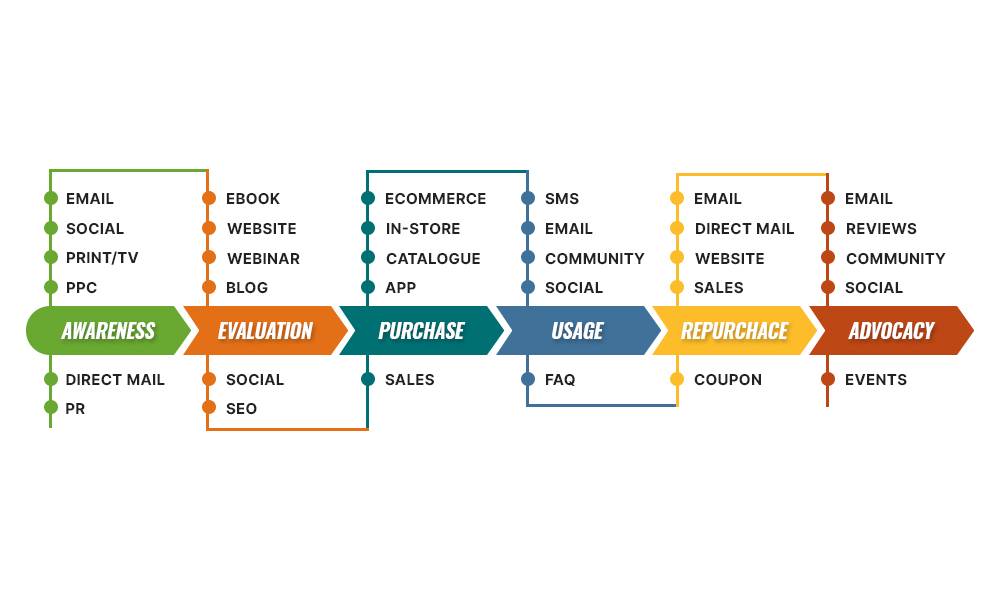
Customer lifecycle consists of various stages that a consumer goes through before, during, and after they complete a transaction.
In short, understanding client lifestyle means the moment they come to your site until they make their last purchase on your site.
This is called customer journey!
Furthermore, the customer lifecycle model has nearly identical characteristics.
You must raise awareness of your products, stimulate clients’ interest in the solution, persuade the consumer to buy, and implement systems to assure customer retention.
Besides, another common difference between B2B & B2C eCommerce purchases is the amount of support that goes into lead generation.
However, when comparing the lifecycle of a regular B2B consumer is far longer than a B2C eCommerce consumer.
3. B2B Vs B2C Ecommerce – Branding
There is a significant distinction between B2B & B2C eCommerce stores that should not be overlooked.
The B2C eCommerce sites look and feel totally different from B2B sites.
The eCommerce stores that sell directly to customers are designed to appeal to a large number of people.
For you to understand, take a look at this site:
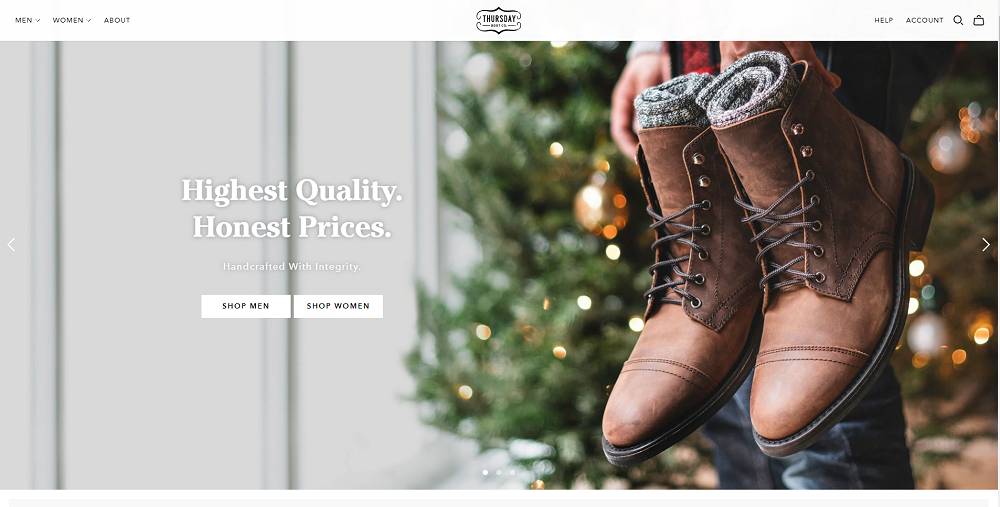
The color combination and subtleness of this store is out of words, which makes the site super AWESOME.
Having this type of store for B2B may not be appropriate.
As a result, most B2B websites are more conservative than their B2C counterparts.
Though B2C sites are more distinctive, they leave a lasting impression on customers’ minds, which makes them come back to your store.
4. B2B Vs B2C Ecommerce – The Audience’s Scope and Size
You may be wondering which platform can generate the most audience.
When it comes to the B2C market, It can be directed at a certain segment of the general audience.
In B2C, targeting is far easier.
Because the transaction value is much lower, but the amount of transactions is much higher, B2C eCommerce websites must be able to manage a high volume of traffic!
Not only that but also, there are things which are more important.
It is important for B2C eCommerce websites to prioritize the security of any financial information that customers may provide on their website, such as credit card information.
On the flip side, there’s a B2B eCommerce store.
It can be only targeted to a specific type of business.
And that’s the reason that the volume of transactions may be a lot lower, but the dollar value of each transaction may be a lot larger.
Because many B2B transactions do not occur online due to their size and nature, it is recommended that B2B eCommerce websites focus on generating leads.
5. B2B Vs B2C Ecommerce – Pricing

When opposed to B2B eCommerce, the pricing model in B2C eCommerce tends to be quite minimal.
B2C brands need to reach the million-dollar milestone, brands may need to sell to hundreds, if not thousands, of people.
The B2C world is simple to GRASP since its pricing model is uncomplicated!
As we all know, when purchasing something online, you can’t negotiate the price. You have to pay what it states.
However, that’s not the case with the B2B market.
B2B businesses can earn millions with a lower audience than B2C, and also their customers are more consistent than B2C.
Plus, the prices are much more negotiable than B2C.
I hope this pricing disparity between B2B & B2C eCommerce has cleared your mind.
6. B2B Vs B2C Ecommerce – Best Buyer Experience
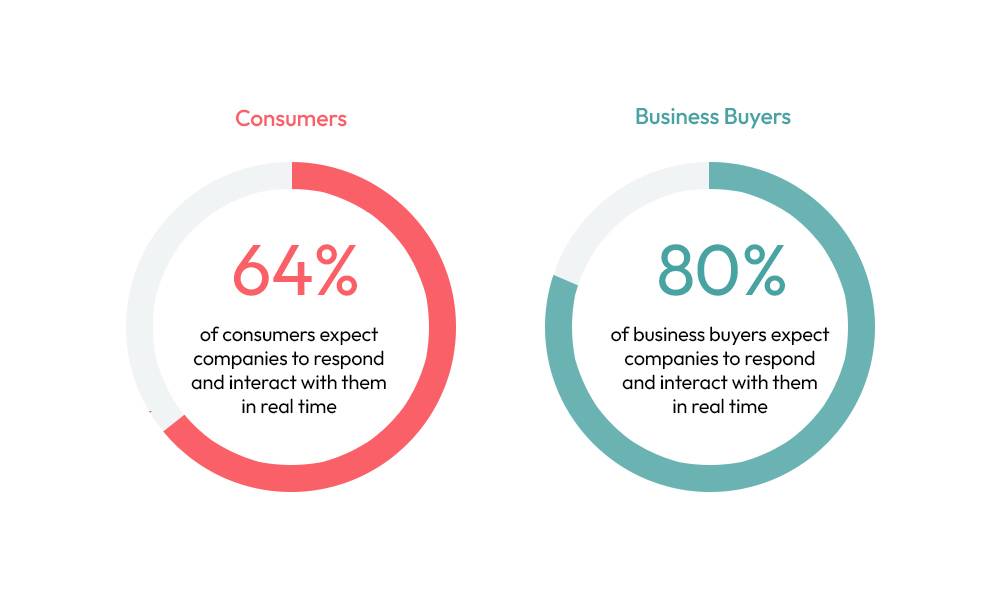
There’s a big difference between B2B buyers and B2C buyers, B2B buyers are not the same as B2C buyers.
B2B buyers are more professionals as they are buying products for their company’s requirements.
Whereas, B2C buyers buy products for their self-satisfaction. They buy because it completes their desire or need.
Moreover, B2C stores have to make sure that they must not feel delayed in purchasing the product whenever their customers come to their site.
In short, the purchasing process should be simple and straightforward, such as adding items to a shopping cart and completing a quick checkout.
Now, B2B purchases are entirely different; they made purchases on the basis of facts and findings.
Another surprising fact is that B2B websites aren’t particularly appealing, because B2B buyers base their purchasing decisions on research and facts.
All in all, buyer experience isn’t the same for both B2B & B2C eCommerce.
Final Thoughts On B2B & B2C Ecommerce
We hope you have understood the above-mentioned differences.
This helps make you understand how you can maximize your current business or the one you’re about to open.
Apart from this, it doesn’t matter if you own a B2B or B2C business. Your goal should be to provide the best service possible for your customers.
Making sure your consumers are satisfied is the best method to ensure your company’s success!
